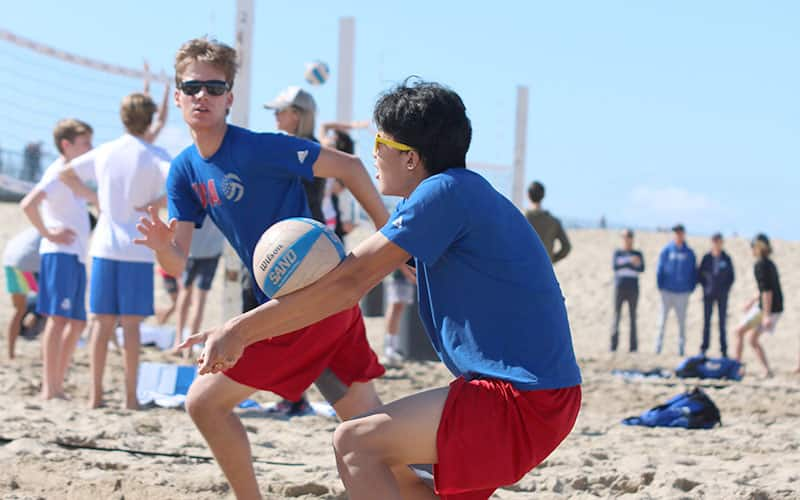
As parents, we all like to think we’re steering our children toward activities and opportunities that will help them lead happy, productive and fulfilling lives. We encourage them to work hard, have integrity, take risks, show gratitude, be respectful, etc.
But at some point, deep down, every parent realizes there are no guarantees. There’s no formula that ensures success, but there are definitely behaviors, activities and opportunities that increase the chances your child will become a successful, ethical and happy adult. According to recent research, participation in youth sports is one them.
A 2014 study by Kniffin, Wansink and Shimizu examined how participation in high school sports correlated with a person’s behaviors and accomplishments later in life. Here are some of their findings.
Hiring Managers Preferentially Hire Student Athletes
Parents often look to youth sports to help their children develop leadership skills, self-confidence, and self-respect.According to the research from Kniffin and his colleagues, managers looking to hire people for entry-level jobs have the expectation former student athletes possess those skills and traits, which gives them a competitive advantage. They even looked at whether this advantage was specifically associated with sports, or whether participation in any organized activity provided the same advantage.Compared to former band and yearbook members, former student athletes were perceived by managers to have greater leadership skills, self-confidence, and self-respect.
Former Student Athletes Advance Faster
Certain lessons learned through sports help young workers advance in their careers. Youth sports expose kids to organizational leaders (coaches) early on, which research has shown to be an important component of learning leadership skills.
Team sports also “reward group-level achievements and appear to facilitate the enforcement of group-serving behavior.” In other words, former student athletes are better team players in a career setting and grow to become leaders who strive for the success of the team.
Former Student Athletes Have Higher Wages at 30 years old
Supporting prior research, a 2010 study by Betsey Stevenson showed participation in high school sports had a positive effect on the amount of education people attained, the likelihood of being employed as an adult, and the wages they earned.
Stevenson’s work focused on the effect of Title IX on the success of women in the workforce, and two results of particular note were that
- Higher wages only correlated with participation in high school sports, and not any other extracurricular activities, and
- Title IX led to a substantial increase in the percentage of women who subsequently pursued traditionally male-dominated, higher-wage careers.
Former Student Athletes Are More Likely to Give Back
Another component of the study by Knifflin and his colleagues examined philanthropic behaviors of former student athletes 60 years after high school. They found that older men who participated in volunteer work or donated money to charitable causes were more likely to have participated in high school sports, and particularly, exhibited leadership traits in high school sports.
Overall, former student athletes earned more money, advanced to more senior career positions, and were more likely than non-athletes to volunteer and donate money as older adults.
It is important to note, the researchers referenced in this article acknowledged they could only show correlation, and not causation. They couldn’t answer whether the people who earned more, advanced further, and were more philanthropic achieved those outcomes because they participated in sport or if the traits that helped them succeed later in life also drew them to participate in sport in the first place.
Either way, participating in high school sports is a winning proposition!
References
Kniffin, Kevin M., et al. “Sports at Work.” Journal of Leadership & Organizational Studies, vol. 22, no. 2, 2014, pp. 217–230., doi:10.1177/1548051814538099.
Stevenson, Betsey. “Beyond the Classroom: Using Title IX to Measure the Return to High School Sports.” 2010, doi:10.3386/w15728.
About TrueSport
TrueSport®, a movement powered by the experience and values of the U.S. Anti-Doping Agency, champions the positive values and life lessons learned through youth sport. TrueSport® inspires athletes, coaches, parents, and administrators to change the culture of youth sport through active engagement and thoughtful curriculum based on cornerstone lessons of sportsmanship, character-building, and clean and healthy performance, by creating leaders across communities through sport.

